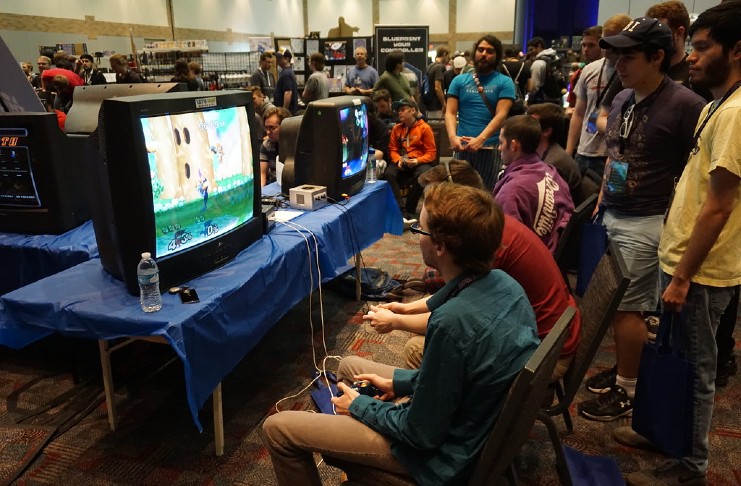How do you start a local esports scene when it feels like you’re in the middle of nowhere?
This is a question and struggle that countless regions have to face in the constantly growing industry of competitive video games. You hear about the strong scenes in major cities in esports crazy countries such as the U.S. and Japan, but that can feel like a different planet when you’re on the east coast of Canada.
That’s how it was for me, and that’s how it was for Dougie.
Eric “Dougie” Douglass is a competitive Super Smash Bros. player and tournament host from New Brunswick. His first tournament was in 2014 at the Fredericton Gaming Expo which featured Mew2King, the first time one of the largest names in Smash had come to the Maritimes for a tournament. Within a year, he was helping host local events and grew to become one of the more respected tournament organizers on the eastern side of Canada.
Dougie understands first and foremost that running tournaments in an area isolated from larger competition requires a different approach and mindset.
“It’s important to figure out your priorities as a TO (tournament organizer.) For example, I know that I, personally, won’t impact the bracket too much if I enter or not, so I’m fine foregoing playing a couple extra sets if it ensures the tournament runs smoothly and not an hour or so behind.”
“If you’re a TO who regularly places well, that’s a different story. But again, it’s just about knowing what your priorities are.”
For Dougie, he realized early on that the key to having a healthy scene in more isolated regions was ensuring that every tournament was an environment where it would be appealing and memorable to everyone involved, not just the top players in the bracket. And in smaller areas, finding and retaining attendees to build your scene is crucial.
One simple way that Dougie tries to do this is if he chooses to enter a tournament bracket, he’ll purposely place himself in the last wave of pools; on top of allowing him to run the rest of the event smoothly beforehand, if someone shows up wanting to enter the tournament but having missed registration, Dougie can tell them to come back later in the day and he’ll give up his spot in the bracket to the newcomer.
These little actions can mean a world of difference not only to an individual’s attendance, but also to the reputation of the scene as a whole: that this local scene is welcoming and worth engaging in.
“[When figuring out your priorities] there’s a difference between doing what’s best for the people and giving people what they want.” Dougie explains in regards to running events. This can range from rulesets, putting people in bracket later than the scheduled time slots, and introducing higher venue fees for higher prize pools. It takes some thought on what to do and what not to do.
“I find the balance by being level-headed but also [sometimes] being a pushover.”
Sometimes this calls for questionable rule changes in the games being played. I’m originally from Nova Scotia and in 2009, there was a lot of heat in the Super Smash Bros. Brawl community about the Ice Climbers infinite chaingrab. A controversial tactic, but not on the table for banning by the global scene.
However, the Nova Scotia scene did end up banning the chaingrab because the largely-casual scene at the time would very likely cease to exist if the chaingrab remained legal. In this case, the health of the scene took priority over pure competitive integrity. The decision was widely criticized by outside regions, but the Nova Scotia scene continued to grow and now boasts one of the strongest regions east of Quebec.
Sometimes these tough choices have to be made. For Dougie, creating the environment for players of all levels to enjoy and find fulfillment is the highest value he holds as a tournament organizer, and he encourages other aspiring TOs in smaller regions to follow suite.
“A competitive scene can start from something as small as a group of friends who are competitive with each other in a game saying ‘Let’s settle this with a tournament.’”
For players who don’t think they have the playerbase or the resources to start running a local scene, Dougie recommends reaching out to any venues in the area; there’s bound to be some place on any given night that could use a little extra cash in exchange for the space. Getting people aware of the tournaments being hosted is an important foundation to getting people in the door.
But above all, Dougie believes that any scene can get off the ground, but you can’t wait for any particular moment; you just have to get started.
“Start now. Any movement is good movement, and even if you feel like you’re not going in the right direction, the work you do will push you in the right way to go.”
Be sure to follow Dougie on Twitter!
